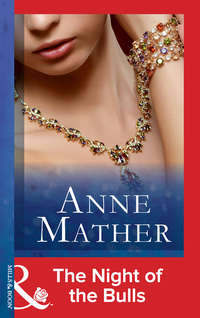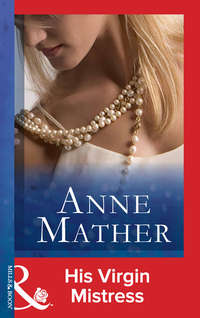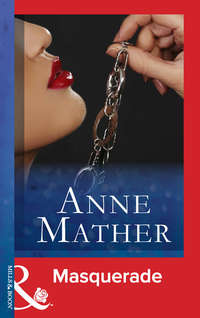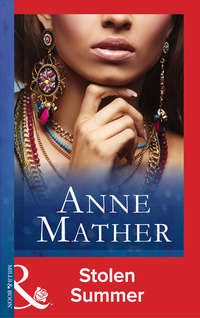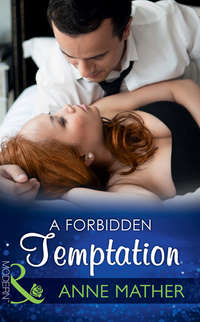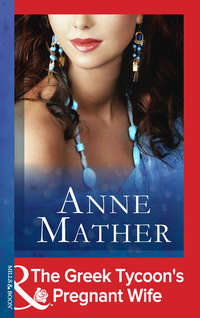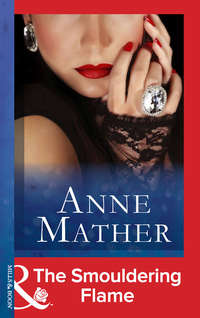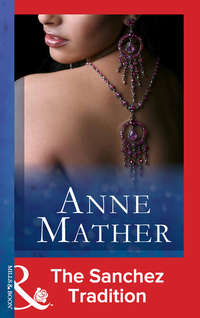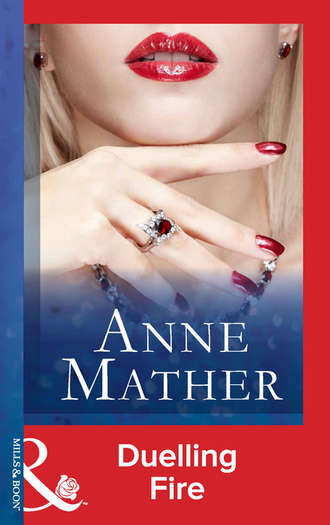
Полная версия
Duelling Fire
‘He seemed very nice,’ Sara conceded, a little awkwardly, and Harriet nodded her agreement.
‘He is. He’s a little wild, of course, a little reckless, perhaps. But charming, nonetheless.’
‘Not to mention the fact that he’s heir to his father’s fortune,’ inserted Jude drily, and Sara suddenly realised what his earlier statement had meant. Not air, but heir. She had met the heir that afternoon.
Harriet ignored Jude’s mocking comment, and offered Sara more tea. ‘I—er—I’ve known Rupert’s father for a number of years,’ she said. ‘Lord Hadley, you know. This house was once part of the Hadley estate. You may have noticed Linden Court on your way here.’
Sara glanced awkwardly up at Jude, then she nodded. ‘Yes. Yes, I did,’ she confirmed. ‘It looks a beautiful building.’
‘It is.’ Harriet’s mouth curved, whether reminiscently or not Sara couldn’t quite judge, but for a few moments she was silent, thinking. ‘I’ve always loved it. Ever since my father bought Knight’s Ferry.’
‘More than three decades ago,’ inserted Jude flatly, bringing Harriet’s eyes back to him. ‘You’ll excuse me, I’m sure, if I go and check on Midnight. Unlike the rest of us, she can’t call for help.’
When the door had closed behind him Sara expected her aunt to make some explanation for his conduct, but she didn’t. Apart from offering the information that Midnight was a mare who was presently in foal, Harriet said no more about him, returning instead to Sara’s reasons for coming to stay with her.
‘I think we should show you your room first,’ she declared getting to her feet, and Sara copied her. ‘After all, we want you to be happy here, and you can’t possibly decide that you want to stay, before you’ve even looked over the house.’
‘I’m sure it will be perfect,’ protested Sara, picking up her jacket and her handbag as she followed her aunt out of the room. ‘Honestly, Aunt Harriet, I’m so grateful to you for inviting me. Where I sleep is of little importance.’
‘Oh, you’re wrong.’ Harriet turned to smile at her as they began to mount the carpeted stairs. ‘And my dear, would you think me horribly conceited if I asked you not to call me Aunt Harriet? I mean,’ she hastened on rather apologetically, ‘when you were a little girl—well, it was a token of respect. But now we’re both grown-ups, your calling me aunt does seem rather silly, don’t you think?
Sara lifted her shoulders. ‘Whatever you say.’
‘You don’t mind?’ Harriet was endearingly anxious, and Sara shook her head.
‘Of course not. Why should I mind? After all, it isn’t as if you are my aunt really.’
‘That’s what I thought.’ Harriet looked pleased. ‘So, it’s just plain old Harriet from now on, hmm?’
‘Harriet,’ Sara agreed, realising that no one else would describe her father’s cousin as either plain or old.
The staircase curved in a graceful arc to the gallery above. A railed balustrade overlooked the hall below, and wall sconces illuminated several white panelled doors and two corridors leading in opposite directions, to the separate wings of the house.
‘This is my room,’ Harriet declared, indicating a door near the head of the stairs. ‘I’ve put you in the rose room, which is along here. It’s quite a pretty apartment, so I hope you like it.’
They walked along the corridor which lay to the left of the gallery. It was a wide corridor with a number of doors opening from it, and a long window at the end which allowed shafts of evening sunlight to stripe the dark red carpet. Harriet stopped at one of the doors and thrust it open, then preceded Sara into the room, switching on the lamps.
Sara’s first impression was of a comfortable sitting room, set with a desk and armchairs, and even a table for taking meals, if she chose. But as her eyes surveyed the room she saw that the living area was only half the apartment. A wide archway and two shallow steps gave access to the sleeping compartment, where a square four-poster bed was daintily hung with chiffon drapes. Everything—the carpet, the silk curtains at the windows, the drapes above the bed, even the patterned quilt itself—was tinted a delicate shade of pink, and Sara had no need to wonder why this was called the rose room.
‘The bathroom’s through here, of course,’ declared Harriet, mounting the two steps and indicating a door at the far side of the bedroom. ‘Well, what do you think? Do you like it?’
‘Who wouldn’t?’ Sara was bemused. It was so vastly different from the austere little room she had expected. ‘You really oughtn’t to have gone to so much trouble.’
‘Trouble? Trouble? It was no trouble, my dear.’ Harriet came down the steps again, and with a surge of sudden gratitude Sara hugged her. ‘Really,’ she averred, with what the girl felt was genuine sincerity. ‘It’s the least I could do for dear Charles’s orphaned daughter.’
Sara sighed. ‘But you hardly saw us,’ she exclaimed, guiltily aware of their neglect. ‘Harriet, I don’t know how I’m going to be able to repay you.’
‘Oh, we’ll find a way,’ declared Harriet, squeezing her shoulder warmly. ‘And now I must go and check that everything’s organised for dinner, or your opinion of our hospitality will suffer a distinct setback.’
Left to herself, Sara wandered about the apartment. Her suitcases, she saw, had been deposited on the ottoman at the foot of the bed, and her step faltered a moment as she thought of the man who had brought her here. The relationship he had with Harriet was certainly a strange one, and she pushed aside the unwilling suspicion that it was more than that of employer and employee. After all, Jude had worked for her aunt for ten years. He had said so. And the familiarity of their association could well be the result. But what did he do? What was his designation? And why should it matter to her, when she was unlikely to have anything to do with him?
There was a ready supply of writing paper and envelopes in the desk, and Sara decided she would write to Laura this evening. The older girl had been much concerned about her decision to accept Harriet’s invitation, and it would be a relief to her to know that everything had turned out so well. Indeed, Sara doubted she would believe that such a fairy godmother still existed, and she was looking forward to describing the house to her, and this room which was so delightful.
There was plenty of hanging space in the long fitted closets, and realising she was probably expected to change for dinner, too, Sara hastily rescued her keys and unlocked her suitcases. The drawers of the dressing table and a squat little chest took all her underclothes and nightwear, and there were lots of hangers to take her suits and dresses.
One of the suitcases and the holdall contained her personal possessions. These were treasured mementoes and photographs, newspaper cuttings of her father’s, the silver-backed brushes he had bought her on her eighteenth birthday, and the books she had collected over the years. She stood a framed picture of her father on the dressing table, and set out the silver-backed brushes, and as she did so, she reflected how little she had to remind her of the man who had had such an influence on her life.
The evening shadows were falling by the time she had unpacked her belongings and taken a quick shower. The bathroom adjoining the bedroom was just as charming as the rest of the apartment, and Sara had taken pleasure in the cream tiles, each displaying a pink rosebud, and the rose-tinted bath, that was sunk into the floor. She showered in the fluted perspex cubicle, taking care to keep her hair dry, and then padded back into the bedroom to decide what she should wear.
A simple black dress seemed appropriate, and would equip her for any occasion. Until she knew what the routine was at Knight’s Ferry, it was safer to follow her instincts, and the dress she chose was plain, but exquisitely cut. Her father had bought it for her, in one of his more extravagant moods. They had been staying in Monte Carlo, and he had had a good win at the Casino—or so he had said. Since then, Sara had learned that Charles Shelley had seldom been out of debt, but like all gamblers he enjoyed spending money, and he was never mean when he was in funds.
Before putting on the dress, Sara gave some consideration to her make-up. A plum-coloured eyeshadow toned with a deeper-tinted lip-gloss, while a touch of mascara darkened the silvery tips of her lashes. Her make-up was light but subtle, and in no way compared to Harriet’s immaculate appearance, which must have taken her hours to apply. Nevertheless, the result had been startling, and Sara wondered whether that was why her aunt had been late.
Her hair offered no problems. It was straight and silky; she brushed it until it shone, and then confined it again at her nape, this time with an ivory clasp.
The dress slid easily over her hips, caressing her skin sensuously. Although it was made of some manufactured fabric, it had the feel of silk, the dipping cowl neckline exposing the curve of her throat. Wide sleeves were drawn from a loosely draped bodice, and the wrap-around skirt opened from waist to hem. Fortunately, the generous cut of the overlap prevented any immodest display.
The little carriage clock on the mantel chimed the half hour as she was adjusting the strap of her shoe, and she caught her breath. Seven-thirty, she thought, with some trepidation. And Harriet had said dinner was usually served about eight.
Realising she would have to go down, Sara cast another glance at her appearance. Did she look all right? Was her lipstick smudged? An anxious finger discovered it was only a shadow cast by the lamp beside her bed, and she relaxed. Heavens, why was she so nervous? What had she to be afraid of?
Shrugging impatiently, she decided she would have to go. This was no time to have second thoughts, to wonder whether she had done the right thing. And besides, it was all so much different from what she had anticipated. Harriet was charming, her house was delightful, and she was going to be happy here.
Thrusting her fears aside, she opened the door and stepped into the corridor. Someone had turned on the lights, and the corridor glowed in the artificial illumination cast from beneath bronze shades. Its mellow patina gleamed on brass and polished wood, and as she descended the stairs she was struck by the simple elegance of the hall below. Now that a glittering chandelier had been lit, the panelling had a rich, lustrous sheen, and its earlier, gloomy appearance was quite dispelled by a huge bowl of spring flowers resting on an old-fashioned umbrella stand. There was a semi-circular table, with an oval silver tray—for letters?—Sara wondered musingly, and a little velvet armchair with curly wooden arms, set beside the little stand that held the telephone.
Reaching the bottom of the stairs, Sara was uncertain where she should go. Harriet had only shown her the small sitting room, and she was looking about her doubtfully when a door behind her opened and the man Jude appeared.
He evidently intended eating dinner with them, she thought, viewing the dark trousers and fine suede jacket he was wearing. Even his brown silk shirt had a lace jabot, though he wore no tie, the strong column of his throat dark against the fabric. His dark hair had been smoothly combed and lay thick against his head, with only the merest fraction overlapping his collar at the back.
His appraisal of her was no less comprehensive, she realised, flushing as he detected her eyes upon him. ‘Well, well, Miss Shelley,’ he remarked sardonically, propping one hand against the jamb. ‘You look lost. Can I help you?’
‘I—I was looking for Harr—for Miss Ferrars,’ she admitted reluctantly. ‘Do you know where she is?’
‘Still dressing, I should think,’ he answered, moving his shoulders in a dismissing gesture. ‘Come and have a drink with me.’ He nodded to the room behind him. ‘We usually foregather in here.’
‘Oh—very well.’ Sara wasn’t enthusiastic, but there wasn’t much else she could do, so she crossed the floor towards him, stiffening as he stood aside to let her pass, and she smelt the faint aroma of Scotch on his breath.
‘Why do I get the impression your name should be Lamb, not Shelley?’ he remarked lazily, and she cast an indignant look up at him.
‘Lady Caroline Lamb was associated with Byron, not Shelley,’ she retorted, pleased to have thwarted him, but he was not finished.
‘I might have been referring to Mary Shelley,’ he pointed out drily, his grey eyes showing amusement. ‘But actually, I wasn’t even thinking of them.’
Sara was confused, and showed it. ‘Mr Jude—–’
‘Just Jude,’ he corrected. ‘And before you ask, it was a quotation from Isaiah I was referring to. Now, shall we have that drink?’
CHAPTER THREE
SARA saw that she was in what appeared to be a library. There were bookshelves from floor to ceiling on three walls and a desk, set beneath long windows, on the fourth. An open fire broke up one wall of shelves, and as it was getting dark outside, it was reflected in the window panes, warm and inviting.
But Sara was scarcely aware of her surroundings. She was still puzzling what Jude had said to her, and it irritated her anew that he apparently had the knack of disconcerting everyone who came into contact with him.
‘What will you have? Sherry? Gin? Whisky?’
Her brooding introspection was interrupted by that lazily attractive voice, and she turned to find him examining the bottles contained in a small cabinet.
‘Do you have—Martini?’ she asked, choosing something innocuous, and his mouth turned down wryly as he completed his inspection.
‘Only vodka and Pernod,’ he told her without contrition. ‘Let me make you a cocktail. I do quite a passable Screwdriver.’
‘Sherry,’ declared Sara firmly, deciding she needed to keep her wits about her, and she watched him reluctantly as he filled her glass.
‘So—what do you think of us?’ he enquired, retrieving his glass, which contained the Scotch she had detected earlier. ‘Not quite what you expected, I imagine. Bearing in mind what you told me earlier.’
‘I wish you’d forget what I told you earlier,’ Sara retorted. ‘I—I was nervous then. It was a long time since I’d last seen Aunt—I mean, Harriet. Now that I’ve got to know her again, I realise how immature I must have sounded.’
‘I imagine anyone over the age of thirty would appear quite ancient to a schoolgirl,’ Jude remarked, propping himself against the bookshelves. ‘Won’t you sit down?’
He gestured towards a leather sofa set to one side of the fireplace, but Sara gave an involuntary shake of her head. She felt more capable of facing him on her two feet, and besides, she resented his arbitrary assumption of the role of host. It lent weight to her suspicion that his position at Knight’s Ferry was not a straightforward one, and the less pleasant aspects of this conclusion were not something she wanted to contemplate right now.
‘Tell me,’ she said, with great daring she thought, ‘what exactly do you do, Mr—er—Jude? My aunt—that is, Harriet—mentioned something about—horses?’
Jude’s mouth compressed. ‘Midnight? The mare?’ He shrugged. ‘She hasn’t foaled yet, if that’s what you mean.’
Sara moistened her upper lip. ‘That wasn’t exactly—–’
‘Oh, I see.’ His expression hardened. ‘You mean am I the stable hand?’ He finished the whisky in his glass. ‘Without wanting to disappoint you, no. That is not my primary function.’
Sara cradled her glass between her palms. The obvious rejoinder to this was beyond her ability, so instead she said, rather weakly: ‘Does Miss Ferrars have many horses?’
‘One or two,’ he replied after a moment, moving away from the bookshelves to fix himself another drink. ‘Five, to be precise. Why? Do you like horses? Do you ride?’
‘I have—ridden, yes.’ Sara was tentative. ‘Mostly abroad. Nothing very startling, I’m afraid.’
‘But you do like it? Riding, I mean?’
Sara shrugged. ‘Quite.’ She was reluctant. ‘Why? Does Harriet?’
‘Harriet?’ Jude put the stopper back into the whisky decanter and surveyed her mockingly. ‘I doubt if Harriet’s ever swung her leg across a saddle,’ he replied rather crudely. ‘Outdoor sports are not her scene.’
Sara pressed her lips together. So why had he asked her? she wondered impatiently. Surely he didn’t imagine she might consider riding with him. His arrogance was equal to it, and her eyes flashed fire as she met his cynical gaze.
‘You know Harriet very well, don’t you, Mr Jude?’ she declared with grim temerity. ‘I wonder if she realises how outspoken you are on her behalf.’
Jude laughed then, a faintly derisive laugh that brought the hot colour to her cheeks. ‘Oh, I think she might,’ he retorted, with gentle irony, and the door behind him opened before Sara could ask him what he meant.
Harriet’s appearance made Sara realise how conservative her own choice of dress had been. This evening, the older woman was wearing bronze tapered pants and a glittering sequinned jacket, with a wealth of chunky jewellery dispersed about her person. Her heels were higher than any Sara would dare to wear, but she moved easily, faltering only momentarily when her gaze met that of Jude.
‘Oh, you’re here,’ she murmured, her fingertips brushing almost absently over his sleeve. Then she caught sight of Sara and withdrew her hand. ‘My dear, how lovely you look! Doesn’t she, Jude?’ She turned to the man with a strange expression, almost daring him to contradict her. ‘Don’t you think Sara looks delightful?’
‘I think the word is irresistible,’ remarked Jude obscurely, and Sara wished she could combat his mocking insolence. But Harriet took no offence at his ironic tone, and accepted the drink he proffered her with contemplative abstraction.
‘It seems a shame to waste it all on a family dinner,’ she remarked, tucking her arm through Sara’s. ‘But tomorrow evening I’ve arranged a little party, so we can look forward to that.’
‘Oh, really …’ Sara moved her shoulders in some embarrassment. ‘You don’t have to worry about me, Aunt—I mean, Harriet.’ She flushed again at the careless error. ‘I didn’t come here to—to be entertained. I just want to earn my keep in any way I can.’
‘You will,’ remarked Jude drily, swallowing the rest of his drink in an impatient gulp, and setting the glass down on the tray. ‘Well, I must be going, ladies. Forgive my abrupt departure, Sara, but it may reassure you not to have to eat dinner with the hired help!’
Sara was embarrassed, but fortunately Harriet’s reaction overrode her involuntary denial. ‘Jude, you’re not going out tonight!’ It was a cry of frustration, made the more so by Harriet’s relinquishing Sara’s arm to grasp that of the man.
‘I’m afraid so.’ Jude was firm, and he removed Harriet’s clinging fingers from his sleeve with cool deliberation.
Harriet sucked in her breath. ‘You’re taking the girl out?’ she exclaimed angrily, and Jude inclined his head as he combed back an unruly swathe of dark hair with impatient fingers.
‘Why not? She enjoys my company,’ he confirmed, evidently immune to her disapproval, and Sara, briefly meeting the hardness of those curiously light eyes, wished herself far from this room and its discomfiting revelations.
‘Does she?’ Harriet’s response was contemptuous, but with a great effort of will she managed to control the impulse to say any more. With her fingers locked tightly together, she gave him silent permission to leave them, and Jude cast Sara a mocking glance as he let himself indolently out of the room.
Alone, the two women exchanged awkward smiles. Sara was embarrassed at having witnessed such a scene, and Harriet seemed absorbed with her thoughts, and less than willing to share them. If only she knew Harriet well enough to offer some advice, Sara thought indignantly, her earlier sense of repugnance giving way to compassion. If what she suspected was true, and Harriet did nurture some affection for the young man, she ought to be warned of his insolence and his disloyalty, for whatever else could one call his overbearing arrogance?
‘Harriet—–’
‘Sara—–’
They both started to speak, and then broke off together in the same way. Sara, half glad that she had not been allowed to finish what she had started, insisted that Harriet have her say, and the older woman patted her arm before putting down her glass.
‘I just wanted to say you mustn’t take my arguments with Jude seriously,’ she said. ‘He and I—well, we’ve known one another a long time, and sometimes—sometimes, I’m afraid, I allow familiarity to get the better of me.’
Sara was taken aback. ‘Honestly, Harriet, you don’t have to explain yourself to me—–’
‘Oh, but I do.’ Harriet was quite recovered from her upset now. ‘I mean, I wouldn’t want you to think that Jude and I don’t—understand one another.’
‘Really, Harriet—–’
‘Jude’s a little wild sometimes, that’s all,’ the older woman carried on, almost as if Sara hadn’t spoken. ‘He likes to show his independence. That’s natural. We all like to show our independence sometimes, don’t we?’
Sara shook her head. ‘It’s nothing to do with me.’
‘Oh, but it is.’ Harriet hesitated for a moment, and then, as if having second thoughts, poured herself another drink. ‘After all, you’re going to be living here—for a while at least—and so is Jude. I don’t want you to—well, take sides.’
The qualification of Harriet’s comment did not register right then. What did was the information that Jude actually lived here, in the house. But where? And how? And to what purpose?
A tap at the door brought Sara round with a start, but it was only Janet come to tell her mistress that dinner was served.
‘Yon young devil’s gone out then, has he?’ she demanded, her sharp beady eyes searching the room. ‘Rob thought he heard the car five minutes since.’
‘Yes.’ Harriet finished her second Scotch and soda and returned her glass to the tray. ‘There’ll be just the two of us, Janet, so please, let’s hear no more about it.’
Dinner was served in an attractively furnished room, with half panelled walls and a beamed ceiling. The rectangular table and heavy chairs matched their surroundings, as did the long serving cabinets and gleaming candelabra.
During the meal, Sara made a conscious effort not to think about Jude, or of his relationship with the woman she had always regarded as her aunt. After all, her position had not significantly changed. She had come here to be Harriet’s companion, and the fact that there was someone else living in the house should make no difference. She sighed, as she helped herself to spiced chicken, creamy in its rich white sauce. Why should she feel so surprised anyway? Harriet was still a very attractive woman. It was natural that she should enjoy a man’s company. But what really disturbed Sara, if she was totally honest, was the identity of the man involved, and the fact that he must be at least fifteen years younger than Harriet.
When dinner was over, they adjourned to the sitting room where they had had tea. The tray containing the coffee was set between them, and Sara relaxed before the comfortable warmth of the fire. It was going to be all right, she told herself firmly, and ignored the little voice that mocked her inexperience.
While they were eating, Harriet had said little of consequence, the comings and goings of Janet, and the young village girl, who Harriet explained came up daily to help her, serving to make any private conversation impossible. But now that they were alone again Harriet became more loquacious, casting any trace of melancholy aside, and applying herself to learning more about Sara herself.
‘Tell me,’ she said, confidingly, leaning towards her, ‘you’re what? Twenty-one years old now?’
‘Almost,’ Sara agreed, and Harriet continued: ‘Twenty, then. Reasonably mature, in these permissive days. You must have had lots of boy-friends, mixing with the kind of people your father generally cultivated.’
Sara shrugged. ‘Not many. Daddy—Daddy was quite strict, actually. He—he didn’t encourage me to accept invitations from other journalists.’


